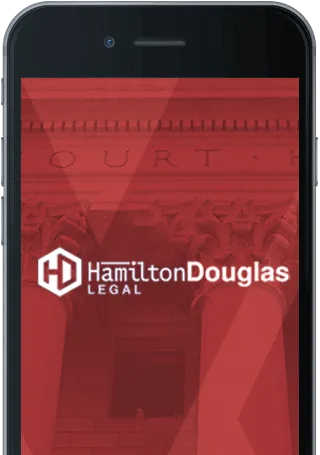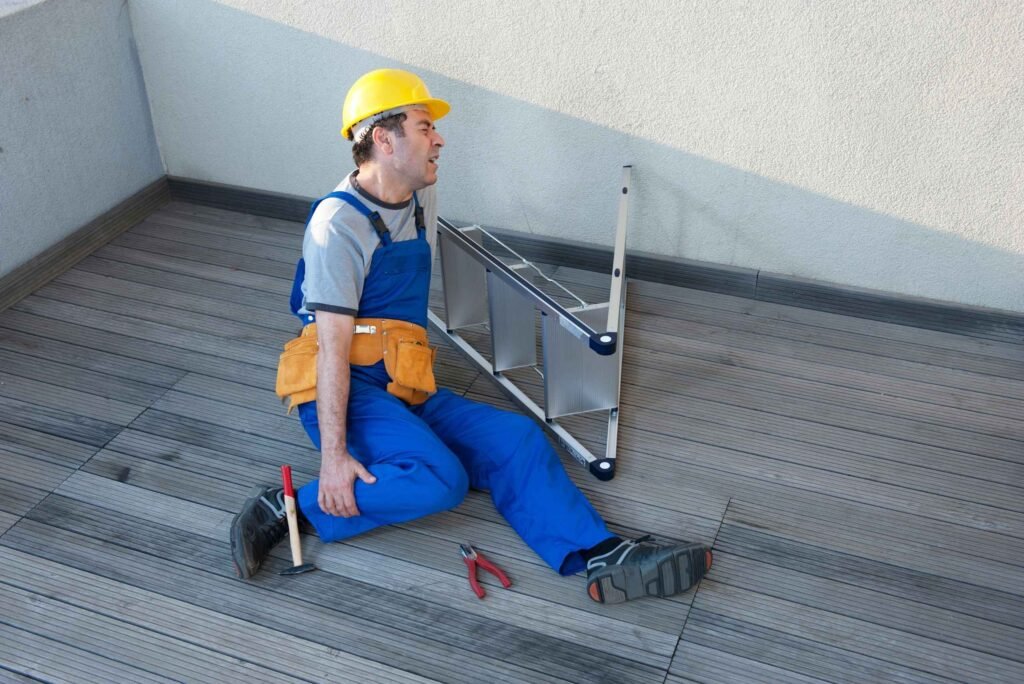Can I claim medical negligence for cerebral palsy?

Sarah John's
Legal Writer
Cerebral palsy is a collective name for a group of disorders that affect an individual’s ability to move and maintain balance and posture. It is usually caused by damage to the brain before, during, or shortly after birth. If you believe you or your loved one has cerebral palsy because of medical negligence, you have every right to bring a claim. However, this process will be complicated, so it is a good idea to seek help from Medical Negligence Solicitors in Scotland.
These experts specialise in understanding the intricate details of medical law. They’ll listen to your story, dig deep into your case, and provide the support you need.
Table of Contents

Get In Touch With Your Local Office:
With local knowledge and a national network of experts, we have the experience you can count on.
Medical Negligence And Cerebral Palsy
In Scotland, medical negligence and cerebral palsy can sometimes be linked; it’s a tough pill to swallow, but it’s a reality. A baby may develop cerebral palsy if a doctor or nurse fails to provide enough care during or after birth.
Cerebral palsy is a neurological disorder that affects mobility and coordination. It is usually caused by brain damage before, during, or shortly after birth. If the harm was caused by a mistake committed by a healthcare provider, this might be considered medical negligence.
Medical negligence isn’t about pointing fingers or laying blame; it is about holding those responsible accountable. If a medical professional fails to provide the level of care that is expected of them and this results in injury or harm, they may be considered negligent.
For example, if a doctor does not intervene quickly enough when a baby is in danger during birth, it might result in brain damage and possibly cerebral palsy. In such instances, the doctor may be considered negligent.
However, proving medical negligence is difficult; It involves proving that the care provided fell below the expected standard and that this directly caused cerebral palsy. That’s where a skilled lawyer experienced in cerebral palsy negligence claims can come in handy.
They can assist you in gathering evidence, providing legal advice, and, if necessary, representing you in court. It’s about gaining justice and preventing something similar from happening to someone else.
Finally, if you believe your or a loved one’s cerebral palsy was caused by medical malpractice, you should see a lawyer. They can assist you in understanding your options and navigating the procedure.
What is clinical negligence for cerebral palsy?
Clinical negligence, also called medical negligence, is when a doctor or nurse makes a mistake or doesn’t give a patient an appropriate level of care, causing harm or damage; Medical negligence can sometimes be to blame for cerebral palsy.
Cerebral palsy is a disorder that makes it hard to coordinate and control your movements. It’s typically caused by damage to the brain, which can happen before, during, or soon after birth. If a doctor makes a mistake during this critical time, it could hurt the baby’s brain and cause cerebral palsy; this is considered medical negligence.
Imagine you’re at a football game there is a goalkeeper that is supposed to stop goals; what if the goalkeeper lets a simple shot gets through, causing you to lose the game? You would most likely be upset and disappointed; let’s apply this in the context of healthcare. Clinical negligence happens when a doctor or nurse doesn’t do their job well, and that causes harm to a patient.
It’s important to remember that it’s not easy to prove clinical neglect. It’s not as simple as saying, “This doctor made a mistake, so they’re at fault.” You need to show that the doctor or nurse didn’t treat the child as well as a skilled professional in their field would have and that this directly caused cerebral palsy.
If you need help, numerous excellent solicitors in Scotland specialise in such cases. They understand medical law and can help you determine if you have a valid claim. They can help you find evidence, give you legal advice, and even go to court for you if there is such a need.
When it comes to clinical negligence and cerebral palsy, it’s all about determining if a doctor’s mistake caused the illness. It’s a complicated part of the law, but you can navigate it with the right help and advice.
Medical malpractice can cause which kind of cerebral palsy?
Medical negligence can cause any type of cerebral palsy. Cerebral palsy is a group of conditions that affect a person’s ability to move and keep their balance and posture. It’s usually caused by a brain injury before, during, or right after birth. If a doctor or nurse makes a mistake at this time, it can damage the brain and lead to cerebral palsy.
There are several kinds of cerebral palsy, such as spastic, dyskinetic, and ataxic:
1. Spastic cerebral palsy:
Spastic cerebral palsy is the most common type of cerebral palsy; it makes the muscles stiff and sometimes makes it hard to move them. Think of trying to walk through a pool of thick honey, and you can get an idea of how people with spastic cerebral palsy might feel.
This stiffness is caused by increased muscle tone, known as hypertonia. It’s caused by damage in the brain, especially in an area called the motor cortex. This area is like the command centre for our movements. When it suffers harm, it can change how the brain sends signals to the muscles.
2. Dyskinetic Cerebral Palsy:
People with dyskinetic cerebral palsy have a hard time controlling their actions. They may make sudden, unexpected, and involuntary movements with their arms, legs, hands, or feet. Picture trying to hold a slippery fish – it’s difficult to keep hold of and can squirm out of your grasp. That’s quite similar to what someone with dyskinetic cerebral palsy may experience trying to control their movements.
3. Ataxic cerebral palsy:
Ataxic cerebral palsy makes it hard to keep your balance and sense of depth. Imagine trying to walk on a tightrope; it’s not easy, right? The same thing might happen to people with ataxic cerebral palsy.
They may walk unsteadily, have a wide stride, or have trouble with quick or controlled actions, like writing. People with ataxic cerebral palsy, like other kinds of cerebral palsy, often use tools and adaptations to help them get through their daily lives.
4. Mixed Cerebral Palsy
Mixed cerebral palsy is when a person has symptoms from multiple types of cerebral palsy. For example, a person might have muscles that are too tight, which is a sign of spastic cerebral palsy including, and also have uncontrollable movements, which is a sign of dyskinetic cerebral palsy.
This happens when different brain regions suffer damage, causing a mix of various symptoms. As with other types of cerebral palsy, mixed cerebral palsy can result from a birth injury if there’s been damage to the developing brain.
People with these kinds of cerebral palsy have access to a lot of help in Scotland. There are many people who can help and give advice to those who need it, including doctors, therapists, and neighbourhood groups.
How long does the average cerebral palsy claim to take?
In Scotland, the time it takes to settle a claim for cerebral palsy can vary greatly. Typically, settling a claim can take a few years; the precise duration depends on various factors.
These factors include how complicated the case is and whether or not the other side is willing to negotiate. It could take longer if a case is complicated or the other side disputes the claim. Gathering all the necessary medical evidence and expert opinions can also take time.
At the beginning of a claim, your lawyer will gather all the necessary information and medical records. The next step is a thorough investigation and getting expert opinions; this process can take a long time because it is hard.
When there is enough evidence, your solicitor will help you write a formal complaint letter and send it to the responsible party. If the other side takes the blame, then the next step is to negotiate how much compensation you should get. However, if they deny responsibility, the case may have to go to court, which can take longer.
If the case of cerebral palsy is particularly severe, then it might take longer to get your compensation, but you might be able to get interim payment to cover you immediate expenses.
DEDICATED CLAIMS ADVISORS
Our dedicated claims advisors are always available to offer free legal advice.
100% NO WIN NO FEE CLAIMS
All our claims are processed on a No Win No Fee basis; you pay nothing if you lose.

MILLIONS SECURED IN DAMAGES
To date, we have secured millions in damages.
THOUSANDS OF SATISFIED CLIENTS
To date, we have helped thousands of clients recover compensation and continue to do so.
What are the time limits for medical negligence in Cerebral Palsy?
In Scotland, the law sets certain time limits, known as limitation periods, within which a medical negligence claim must be made. For most medical negligence claims, the limitation period is three years. This means the claim must be brought to court within three years of the date when the negligence occurred or when it was first realised the relation between the injury and medical negligence.
However, the rules are different for children with cerebral palsy due to medical negligence during their birth. Their three-year limitation period doesn’t start until their 16th birthday, so they have until their 19th birthday to start a claim.
If the person affected by cerebral palsy doesn’t have the mental capacity to make a claim, the three-year limit doesn’t apply. A claim can be brought on their behalf at any time.
These time limits can be complicated, and there can be exceptions. So, it’s always best to seek advice from a specialist medical negligence solicitor as soon as possible if you’re considering a claim.
What is the average payout for medical negligence in cerebral palsy?
In Scotland, if a person with cerebral palsy wins a compensation claim, they can get a lot of money because of the severe nature of the condition and its impact on the victim’s life. The compensation is intended to cover the costs of care, treatment, occupational therapy, modifications to the home, and other expenses associated with the condition.
The exact amount of compensation can vary from case to case because it depends on the specifics of each case. The factors that are taken into account are the severity of cerebral palsy, the level of care needed, the possible loss of earnings, and any extra costs incurred because of the condition.
Some compensation settlements can reach millions of pounds because cerebral palsy is a lifelong condition requiring extensive ongoing care and support. It’s important to note that getting compensation isn’t winning the lottery; it is the money needed to cover the high costs of having cerebral palsy.
A good lawyer will fight for a compensation settlement that meets the person’s current and future needs. Even though it’s hard to say what the average payout is, it’s safe to say that the numbers are often high because the condition is severe and lifelong.

Can’t Work Due To Illness Or Injury?
Use our free online claim check tool and find out in minutes if you have a claim.
Can you sue NHS for cerebral palsy?
If you think NHS medical negligence caused your child to have cerebral palsy, you can make a claim on behalf of your child against the NHS. However, this is a serious allegation, so you must provide solid and extensive evidence to back it up.
The process involves proving that the NHS-provided care fell below an acceptable level and directly caused the child to have cerebral palsy. This could be about care received during pregnancy, birth, or right after birth.
If you can prove that something the NHS did or didn’t do led to an injury or illness that could have been prevented, you might be able to make a claim. However, this process can be hard, so you shouldn’t take it easily.
Claiming against the NHS isn’t about punishing doctors or nurses; it’s about getting the help needed for the care and treatment of cerebral palsy. Compensation can help cover the costs of this care, such as therapy, tools, and changes to the home, as well as any lost wages.
When claiming against NHS, it’s best to work with a lawyer who is an expert in medical negligence. They can help you through the process, ensure all the evidence you need is collected, and try to safeguard your best interests during the claim.
Medical Negligence Cerebral Palsy Claims In Scotland – Free Initial Consultation
If you think medical negligence caused your child to have cerebral palsy, you can go to court and ask for justice and compensation in Scotland. Personal injury claims in Scotland related to cerebral palsy are complex and challenging, but you don’t have to go through them alone. There are skilled solicitors in Scotland who specialise in these kinds of cases and are ready to help.
Most solicitors and legal firms offer a free initial consultation. This is your chance to share your story and get some initial guidance. You will talk about what happened, how it has changed your or your loved ones’ life, and what you hope to achieve by making a claim. It’s a great chance to learn more about the process and ask questions.
The lawyer will then look at all the facts of your case. They will look at the evidence, decide if you have a valid case, and give you an idea of how much compensation you might get. This information will be very helpful as you decide what to do next.
When it comes to fees, many cerebral palsy solicitors work on a no win no fee basis. A no win no fee agreement means you won’t have to pay their fees unless your claim succeeds. So, you don’t have to worry about how you’ll pay for your case.
Don’t forget that making cerebral palsy compensation claims isn’t just about getting money; it’s about getting the help and resources needed for the future and holding those responsible accountable for their actions.
Easy Ways To Get In Touch
We are here to help. Give us a call, request a call back or use our free claim check tool to get in touch with our friendly legal team. With local knowledge and a national network of experts, we have the experience you can count on.





